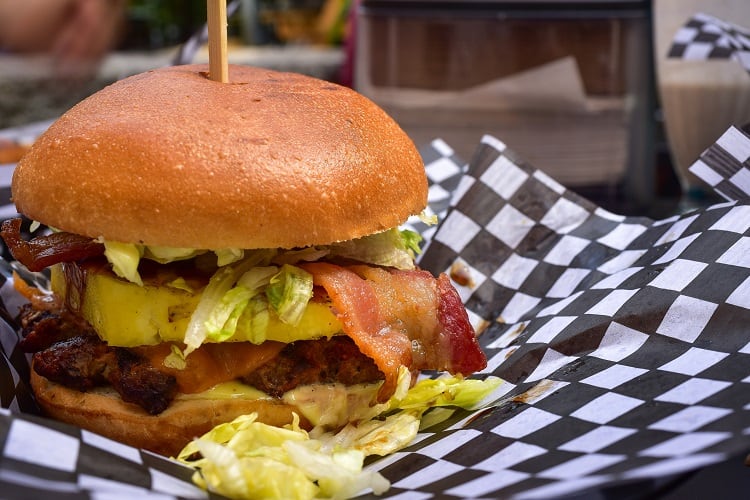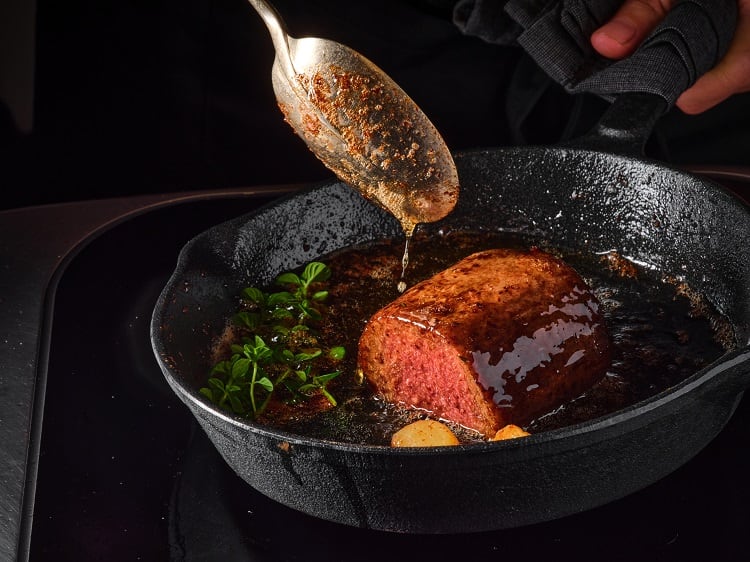Plant-based was an overarching trend of SIAL 2022 in Paris. Almost every hall hosted a plant-based meat or dairy innovator, and FoodNavigator was on the ground to see (and sample!) their wares.
From pistachio milk to konjac shrimp, and algae-based nuggets to cashew nut foie gras, we’ve rounded up the most innovative plant-based products spotted at SIAL.
Alt seafood made from micro- and macroalgae
French start-up Onami claims to be the first alt seafood player to use both macro- and microalgae (wakame and chlorella) in its products.
Based in France’s north west region of Brittany, the start-up was founded by two life-long friends wanting to encourage greater sustainability in our diets. The result is Onami (nami meaning ‘wave’ in Japanese), which is selling a range of fish filet and nuggets alternatives to French consumers.
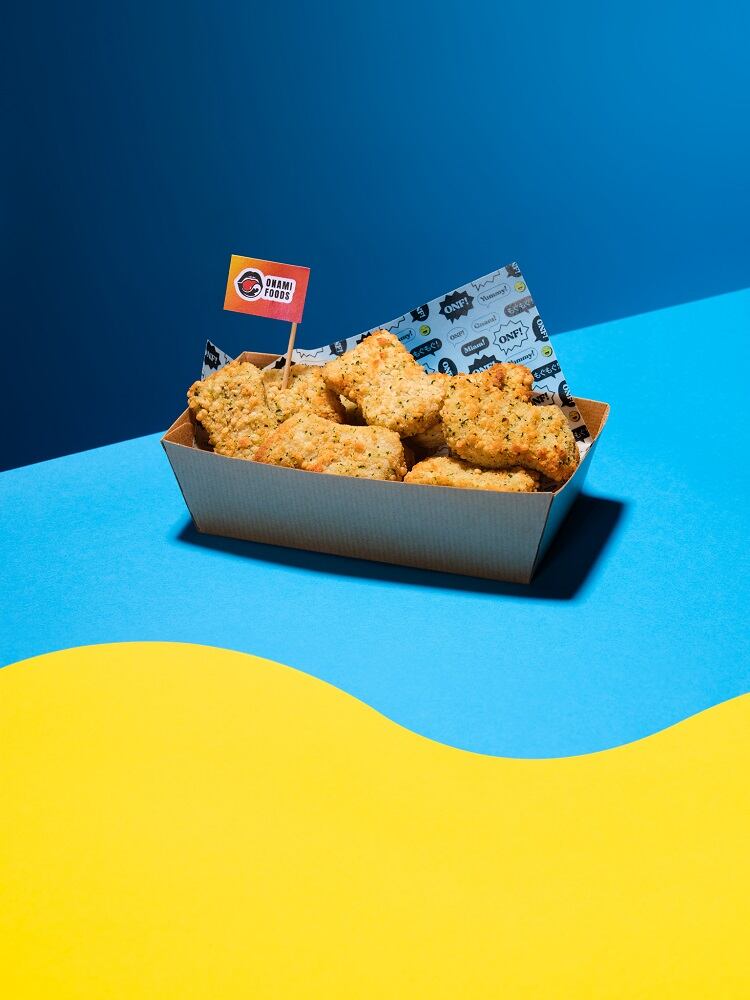
Aside from algae, ingredients include chickpea protein, rice, pea and potato. Onami’s Mini Hug Filets contain 5.6g protein and 3g protein per 100g.
“Our USP is that it’s clean label,” co-founder and CEO Charles Fouquet told FoodNavigator, adding that its line is free from additives such as methylcellulose.
The start-up launched into foodservice in May, and into retail just last month. “We’re currently selling in France, but have plans to launch into Germany soon, as well as the UK.”
Plant-based foie gras
After three years of R&D, French start-up Aberyne has developed a vegan alternative to foie gras made from cashews, coconut oil and cocoa butter: Green Foie.
A well-known delicacy consumed the world over, conventional foie gras is made from the liver of a duck or goose. Its method of production is controversial: to fatten the birds ahead of slaughter, they are force-fed with more food than they would naturally eat in the wild.
Aberyne CEO Mikel Abeberry became interested in replicating conventional foie gras with plant-based ingredients after his father developed heart problems. Deprived of foie gras by his doctor, Abeberry believes he has succeeded in replicating ‘all the flavours of a classic foie gras’ but using vegan ingredients only.
Cashews are regularly used in plant-based cheese production. However, in the case of Green Foie, the cashews are not fermented, the CEO told FoodNavigator. The plant-based formula – which mixes nuts with plant oils – offers the ‘meltiness’ and long aftertaste consumers associate with the real thing, he added.
“We’re targeting the younger generation – consumers with ethical consumption behaviour,” said Abeberry, who sees market potential in the UK where consumers are ‘very open’ to plant-based products.
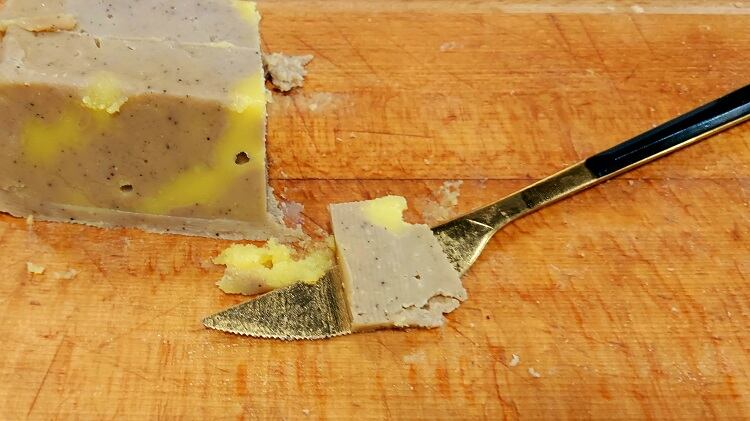
Pistachio milk
Turkish alt dairy brand Fomilk is producing some of the better known plant-based milk products: oat, soy and
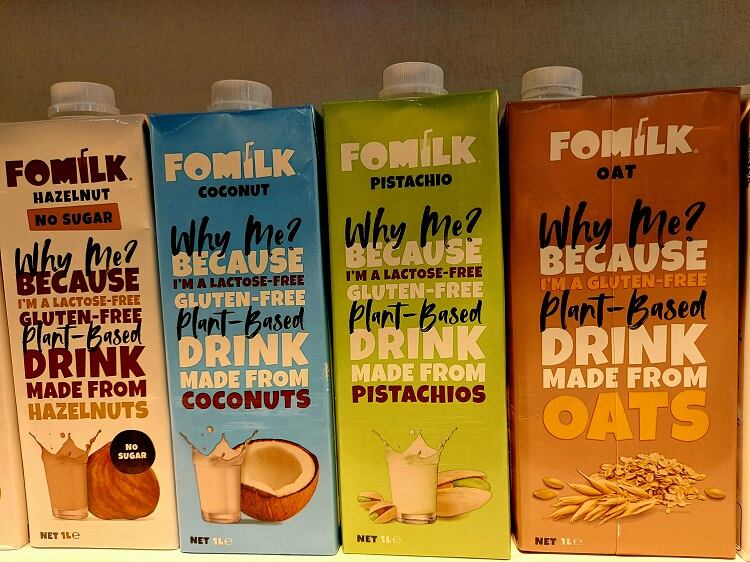
almond. It is also producing some of the lesser-known: notably pistachio milk.
Its pistachio drink contains 3% pistachios, alongside sugar, calcium, sea salt, and stabiliser. To develop the product, Fomilk grounds pistachios into a ‘creamy paste’. From there it blends in other ingredients to obtain a dry mix, homogenises it with water, and heats the product to give it a ‘milky texture’. After sterilisation, the products are packaged and prepared for sale.
Although it was the pistachio drink that caught our eye, we learned that Fomilk’s most popular alt dairy beverage is its sugar-free almond offering. “We predict our most popular beverage next year will be oat drink.”
Fomilk has also developed cheese alternatives made from a coconut oil base to mimic mozzarella and cheddar, which it is selling under its Fomaj brand.
Fermenting fava beans to make plant-based meat
Finnish alt meat business Meet was set up by local meat processing company Pouttu in 2019. The following year,
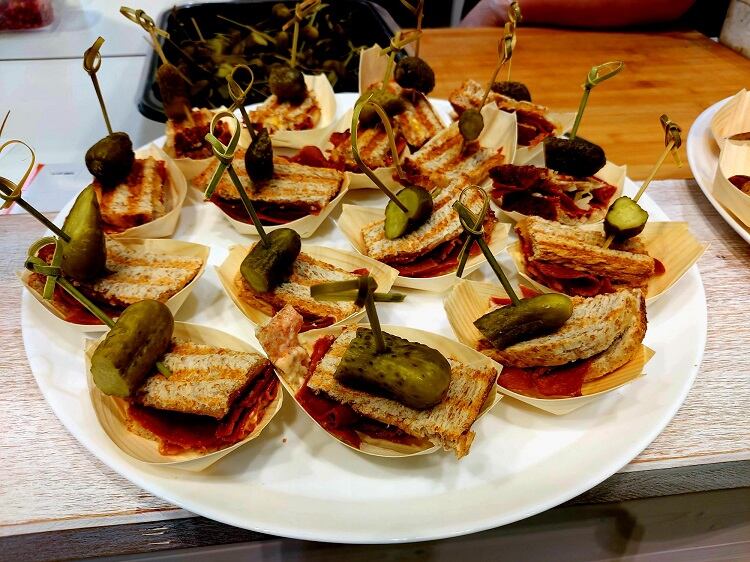
Meet was spun off as an independent enterprise, and from the look of its revenue numbers, has gone from strength to strength. In 2020, the company achieved an annual turnover of €3.5m, and in 2021, €6.5m.
Its secret? Fermented fava beans, FoodNavigator was told at SIAL. “Fava beans are better for digestibility than other plant proteins on the market. It’s also sustainable, and good for the soil.”
Meet is the result of two years of R&D. Today, its product line ranges from ‘Provence Sausage’ (made with fermented fava beans, pea protein, coconut fat, and a sausage skin made from seaweed) to a ‘Muu Roast Biif’ boasting 26g protein and made with lentil flour, as well as a Meet Tagine product.
Today, Meet is the leading brand in plant-based retail in Finland, with 35% market share. This month, the company is launching into foodservice in Finland and Estonia.
Plant-based bacon with patented fat
For French start-up La Vie Foods, ‘fat is life’. The company has developed patented fat technology for its line of pork alternative products: La Vie Bacon and La Vie Lardons (bacon bits), which it is selling in France and the UK.
La Vie’s alt pork range is the result of more than three years of research and development. Its bacon alternative – smoked with beetroot – is made from just seven ingredients, with 90% sourced from Europe. “We are working towards sourcing 100% ingredients from Europe,” we were told. Ingredients include soy protein and sunflower oil.
The start-up’s plant-based bacon contains as much protein as pork bacon, but with 6-8 times less saturated fat.
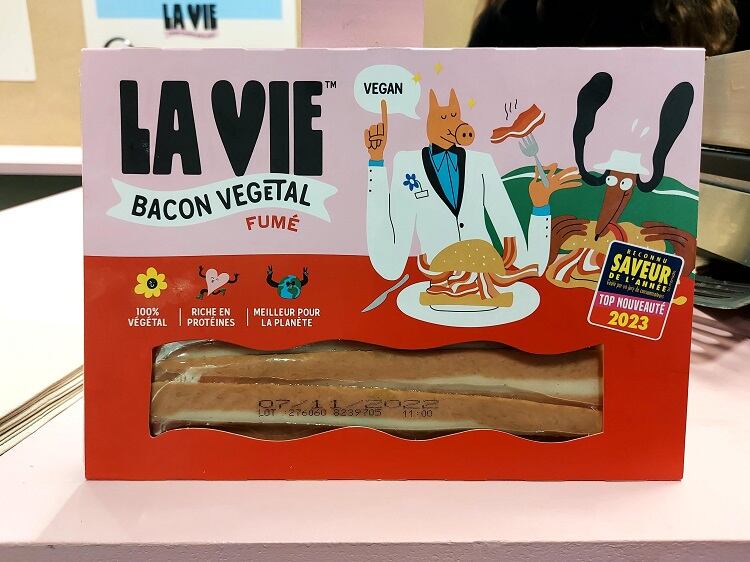
La Vie has already achieved significant listings, via Burger King in France and the UK, and thanks to a recent retail launch in the UK, is now selling into Sainsbury’s and Waitrose. Honest Burger is also working with La Vie’s alt bacon product.
The start-up has also developed a ham alternative, which it plans to launch next year. “It’s a game changer,” we were told. Indeed, the ham alternative took home the ‘grand prix’ at a recent Carrefour competition.
Konjac-based squid alternative
Singapore’s Growthwell Foods has launched a plant-based chicken and seafood brand: Happiee.
The brand works with a range of plant-based ingredients, ranging from soy to konjac – a root vegetable that grows in parts of Asia. It is known for its edible ‘corm’, which is the tuber-like part of the stem that grows underground.
Happiee, which has operations in Romania, is launching plant-based prawn, squid, and calamari products made with konjac. It believes to be the first to do so, with Growthwell’s VP Brand Development Melodie Hoo explaining the konjac provides a ‘chewy’ and ‘bouncy’ texture.
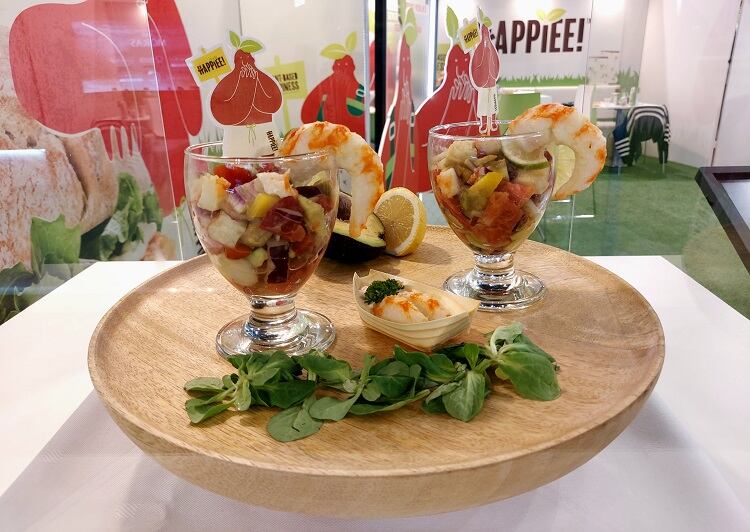
Happiee first entered the Singapore market in January of this year, followed by Malaysia in July. The brand plans to launch into the UK in the first quarter of 2023.
Chickpea milk
In Paris, start-up Yofi is looking beyond the classic plant-based milk alternatives lining the supermarket aisle (think soy, oat, and almond) to a less likely ingredient: chickpea.
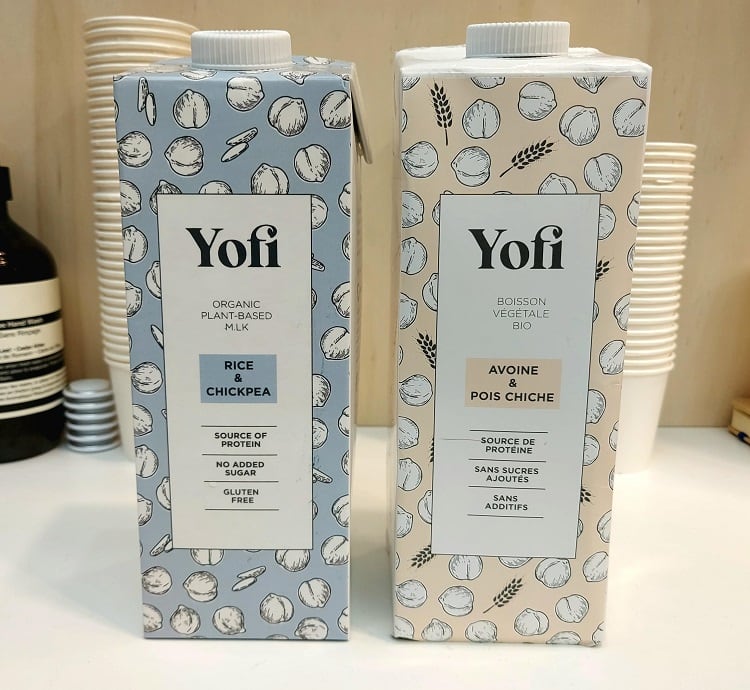
Yofi claims to be only European company to be launching a chickpea-based milk alternative onto the market. With just five ingredients, no gums, sugar, or additives, the chickpea and oat milk is ‘great for cooking’ and ‘great for foaming’, we were told.
It contains twice the amount of protein compared to other plant-based milks, FoodNavigator learned at Yofi’s SIAL stand. The company is looking to launch a barista version in 2023.
Yofi has also developed a chickpea and rice milk alternative.
‘Plant-based flesh’ achieves Nutri-Score A
Paris-based start-up Dévore has developed a line of ‘healthy’ meat alternatives achieving a ‘green A’ Nutri-Score.
Its products are founded on building blocks it describes as chair végétale (plant-based flesh). Vegan, organic, and ‘healthy’, ingredients include soy protein, corn and spices. To date, the product line includes alternatives to chicken slices and nuggets.
Ready-to-cook, the start-up recommends cooking its products ‘like meat’: quick frying for a few minutes in a pan (with a bit of plant-based oil for the ‘slices’). The nuggets can be cooked in the oven.
“Our products have less fat but the same amount of protein as their meat counterparts,” we were told. “They’re available online, in frozen and fresh formats.”
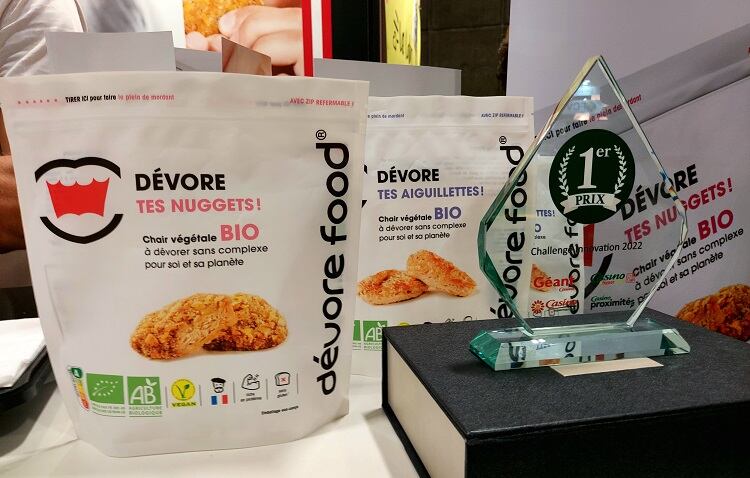
Plant-based striploin, tenderloin, and ‘pulled meat’
Israeli start-up Redefine Meat has added five new products to its New-Meat range, which already includes plant-based beef and lamb flank cuts, as well as ground beef, sausages, burgers, and lamb kebab products.
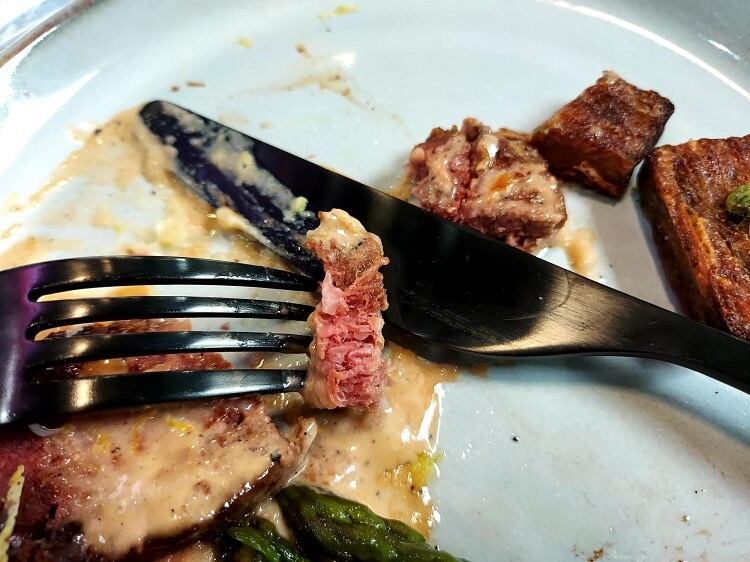
The new products include two premium cuts – Redefine Tenderloin and Redefine Striploin – and a new category of ‘pulled’ meat alternatives: Pulled Beef, Pulled Lamb, and Pulled Pork.
The plant-based tenderloin and striploin are made using Redefine Meat’s additive manufacturing technology, leveraging the same ‘building blocks’ as the start-up uses for its entire range: soy and pea proteins, chickpeas, beetroot, nutritional yeasts and coconut fat.
Redefine Meat’s Pulled Meat range is not made using additive manufacturing technology. The new line opens up a ‘brand-new plant-based category’ in foodservice, according to the start-up, ‘fulfilling an unaddressed market need from chefs for high-quality pulled meats’.
The start-up’s new premium cuts will be distributed across Europe thanks to a new partnership with meat importer Giraudi Meats.
A round-up of the food and beverage innovations that caught our eye on the show floor, from fresh spirulina spread to fish-sourced collagen water, can be found here.


